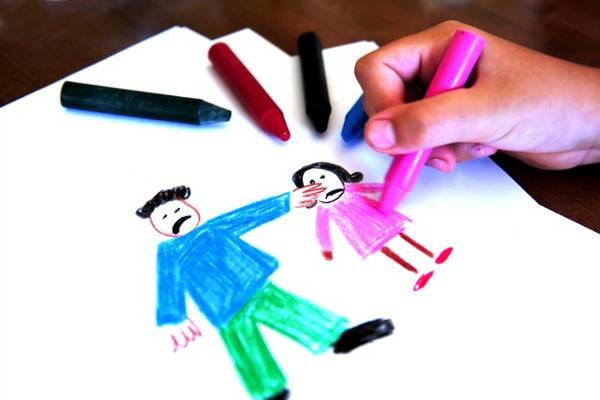
How To Find Out If Your Child Has Been Sexually Abused?
14 Dec 2015 | 5 min Read
Niyati Shah - Averti
Author | 8 Articles
Medically reviewed by
Ruchi Manek
Child Sexual Abuse is the most sensitive topic parents have to deal with. It may be worth your while to read my articles on What is Child Sexual Abuse, How To Help Your Child Protect Him/Herself From Child Sex Abuse and Ill effects of Child Sexual abuse, before I explain why some kids talk about the incidences and why some don’t. I also would like to highlight some warning signs kids show in cases of abuse. We, parents, are always there for our children. We wish the best for them. We give them the best we can. We love them the most. Then why do our children not talk to us? Where is the problem? Let’s understand more about sexual abuse signs and ways to take precautions against it.
What Is Sexual Abuse?
The act of having sexual contact with someone who is under a certain age or who is unable to provide permission due to age, mental or physical disability, or both, the act comes under sexual abuse.
Types Of Sexual Abuse
There are 5 types of child sexual abuse.
- Verbal: The use of spoken or written words to communicate, suggest, or imply sexual content is known as verbal sexual abuse. Verbal sexual abuse is common, and it can happen in social situations, at work, or at home.
- Physical: Non-consensual touching, fondling, physical constraint, tickling, kissing, excessive washing of genitals, enemas, intercourse, sodomy, oral sex, licking, brushing up against, urinating on, breach of privacy, stalking are all examples of physical sexual abuse.
- Visual: Unwanted exposure to sexually explicit photos, sexting/airdropping, exhibitionism/flashing, nudity or inappropriate attire at home, and performing sexual actions while non-consenting others are examples of Visual Sexual Abuse.
- Covert: Without your knowing, covert child sexual abuse can occur. Being watched, followed, photographed, social media stalking, and sexual cyber-harassment are all examples of it.
- Ritualistic: Sexual violence that is associated with some type of spirituality or ritual is known as ritualistic sexual abuse. Under this violence, offenders try to justify their behaviour to the victim as an act of penance or devotion. Child marriage, incest rituals, genital mutilation, and chanting or incantations are all examples of this form of abuse.
Signs Of Sexual Abuse
If your kid you care for has been sexually assaulted, you may observe that:
- It is more remote or quieter than normal
- Cries for no discernible reason
- Begins to wet the bed or stain their underwear
- is abrasive or irritable for no apparent cause
- When their head or stomach hurts, and there isn’t a physical reason for it
- begins to get nightmares
- Is having difficulty in sleeping
- Less active in school
- Redness in the vaginal area
- walking or sitting with difficulty
- bruises on their delicate body areas, such as their buttocks or thighs
- discharge from the penis or vaginal discharge are signs of a sexually transmitted infection.
Why don’t kids talk to their parents despite having a ‘normal’ environment at home?

Children often don’t talk about the abuse because they think it is their fault, or feel their parents won’t believe them, or their abuser has convinced them that it is normal or a ‘special secret’. Children may also be bribed or threatened by their abusers. A child who is being sexually abused may care for their abuser and worry about getting them into trouble.
Why Do Some Kids Immediately Speak To Their Trusted Adults?

“Warning sign” is just another way of saying “opportunity for prevention” – a chance for caring adults to recognise possible risks and to take necessary action to protect their children.
Children often show us rather than tell us that something is upsetting them. There may be many reasons for changes in their behaviour, but if we notice a combination of worrying signs, it may be time to call for help or advice.
What To Watch Out For In Your Children:
1. Behaving in an inappropriate sexual way with toys or objects
2. You see your child withdrawn than usual or very clingy
3. Becoming secretive
4. Sudden personality changes or insecure
5. Sudden bed-wetting, sucking thumb

6. Inexplicable or sudden fear of particular places or people
7. Slang words or adult words for body parts or behaviour
8. Unexplained money or gifts.
9. Nightmares, sleeping problems
10. Not wanting to be alone with a particular person
11. Physical signs include unexplained rashes, soreness or bruises around genitals or mouth, sexually transmitted diseases, and pregnancy.

Prevention Of Your Child From Sexual Abuse
- Enhance primary care
- Start taking parental behaviour training programmes.
- Take the treatment that aims towards preventing problematic conduct and subsequent engagement in violence.
Anyone of the above signs of sexual abuse doesn’t mean that a child was or is being sexually abused, but you should begin to ask questions and consider seeking help if many signs are seen. Keep in mind that some of these signs could be from different stress areas.
Reference Articles:
All About Child Abuse: Know all about child abuse and its types in detail.
How To Tell If Your Child Is Sexually Abused: Here is how you tell whether your child has been sexually abused or not!
Signs Of Sexual Abuse: You can’t unsee these major signs of sexual abuse. Must check them out now!
A


Suggestions offered by doctors on BabyChakra are of advisory nature i.e., for educational and informational purposes only. Content posted on, created for, or compiled by BabyChakra is not intended or designed to replace your doctor's independent judgment about any symptom, condition, or the appropriateness or risks of a procedure or treatment for a given person.
